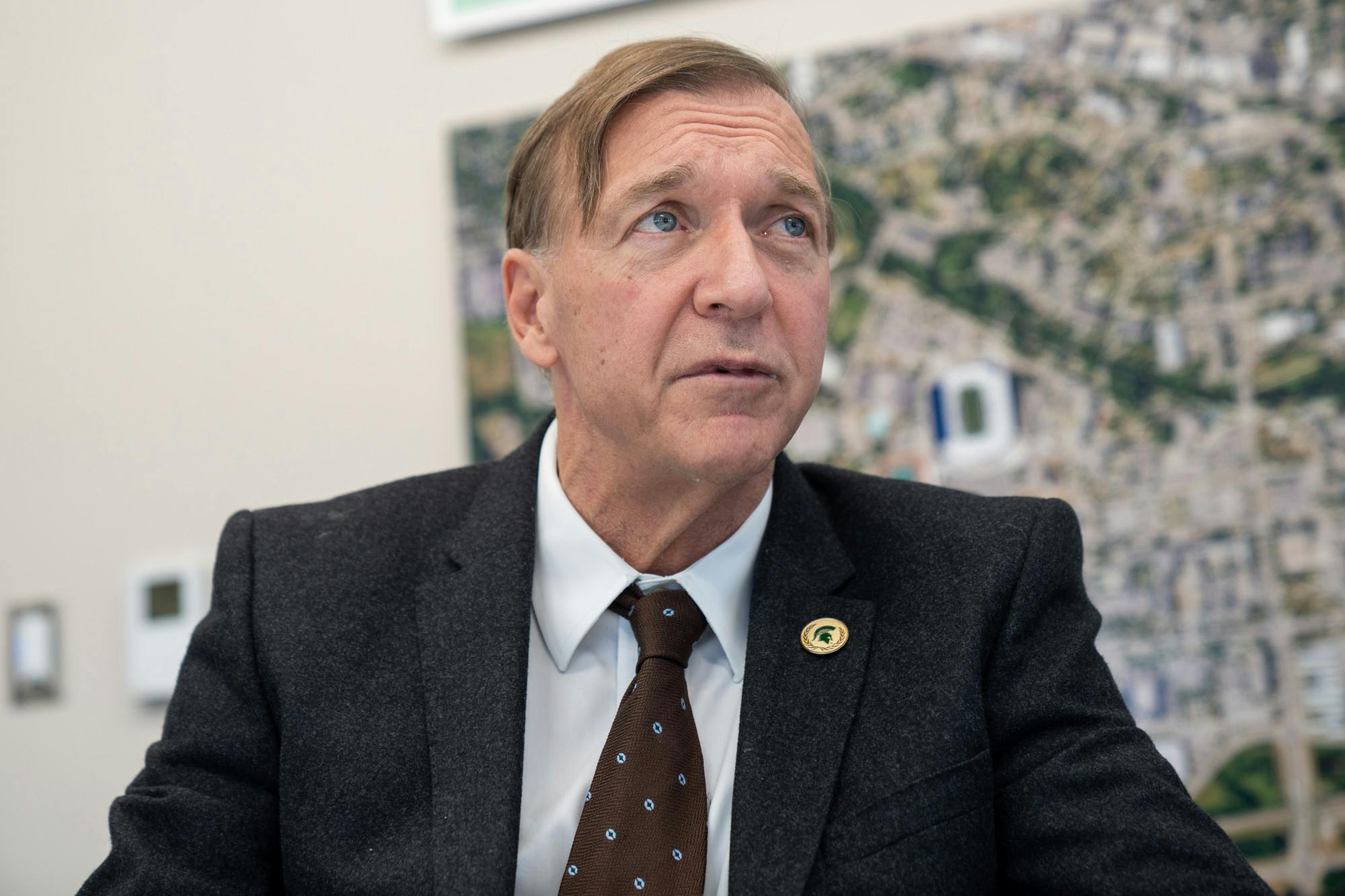Today is Samuel L. Stanley Jr.'s last day as president of Michigan State University.
Throughout his almost four-year tenure at the university, he was faced with guiding the school through a pandemic and, over these last few months, a turbulent Board of Trustees. Working with a board at odds led to Stanley’s resignation on Oct. 13.
In an exclusive interview with The State News, Stanley reflected on his time at MSU. He said he is going to miss connections with students the most.
“(Students are) the reason that I have been willing to be a president and in higher education to really have impact with students,” Stanley said. “The opportunity to meet with them, see their potential and watch them achieve.”
As head of the university, Stanley dealt with criticism from people who disagree with administrative decisions. Stanley said he made efforts to be transparent when he had to send tough messages to the MSU community, like about classes moving online or mask mandates.
“One of the things I’m proudest of … was the way we communicated through our letters to campus and … the community to keep people briefed. When we did have to make these decisions (we’d) try and provide some transparency of why we were doing it.”
He said university leaders can’t let ego stand in the way. They can’t be afraid to reverse and adapt decisions, or be afraid to make tough choices.
Even when people disagree, he just sees it as part of the job.
“I respect their right to disagree, I respect their right to complain about it, maybe take actions and sue,” Stanley said. “Everybody has those kinds of reactions available to them, but you can’t let it stop you from making the decisions you need to make.”
Stanley came to MSU in the midst of a Title IX crisis after the ex-MSU doctor Larry Nassar scandal.
“There was healing necessary on campus,” he said.
Stanley addressed these issues with efforts to improve the climate for survivors on campus, like holding meetings with them and student groups and bringing in new leadership.
He said these new additions to MSU leadership helped bring valuable outside perspectives to a university experiencing trauma.
“I did accomplish some of the things (I wanted to when I came here) and one of them was to really emphasize the importance of having a campus that’s welcoming and viewed as safe and inclusive by everybody who’s on it,” Stanley said. “That really helps people do their best work. I think we’ve made a lot of progress towards doing that.”
An initiative he referenced was the 2030 strategic plan, which he called a blueprint for the university. Although his time was cut short at MSU, he said he’s looking forward to progress on projects like the Henry Ford health center, the upcoming multicultural center and health and wellness center.
“I would’ve loved to see the groundbreakings on those, at least be there for that because those are things I think are going to make a huge difference to students on campus,” Stanley said.
In the 30 years or so that Stanley has been a faculty member at different universities, he has never taken a sabbatical. He’s looking forward to taking time off to work on the book he is co-authoring with an ACE Fellow.
He also plans to help with the leadership transition for interim president Teresa Woodruff.
“We need to sit down and talk … about what are the issues that need kind of immediate addressing and where she needs to be briefed,” Stanley said. “The job is so big, the scope of things that I’m engaged in is so large … The provost is an incredibly important job, it’s a very busy job, but the presidency expands it in some sense.”
Stanley’s favorite memory on campus is commencement, which he says is the most “joyous day of the year” for him. One thing he will remember the most is standing up in front of the crowd in the Breslin Center, handing diplomas to students.
Support student media!
Please consider donating to The State News and help fund the future of journalism.
Although he won’t be able to address the graduating seniors this year, he wanted to congratulate them. Getting through the difficult “COVID years,” he said, is an impressive show of perseverance.
“We’re in the part of a revolution where work is changing and the definition of the work is changing and the opportunities for work is changing,” Stanley said. “The sky’s the limit in terms of the possibilities … I know they’ll carry on the tradition of MSU students, of accomplishment.”
Discussion
Share and discuss “'That's part of my job': Stanley addresses tough decisions during presidency” on social media.







